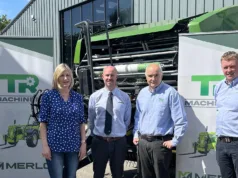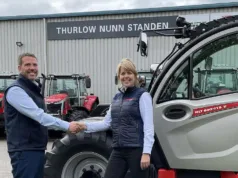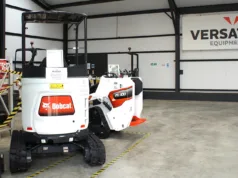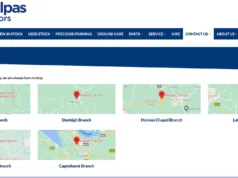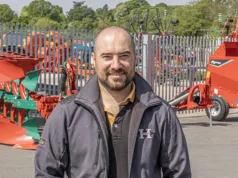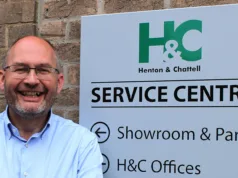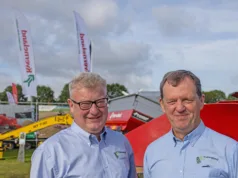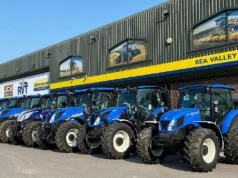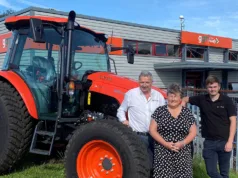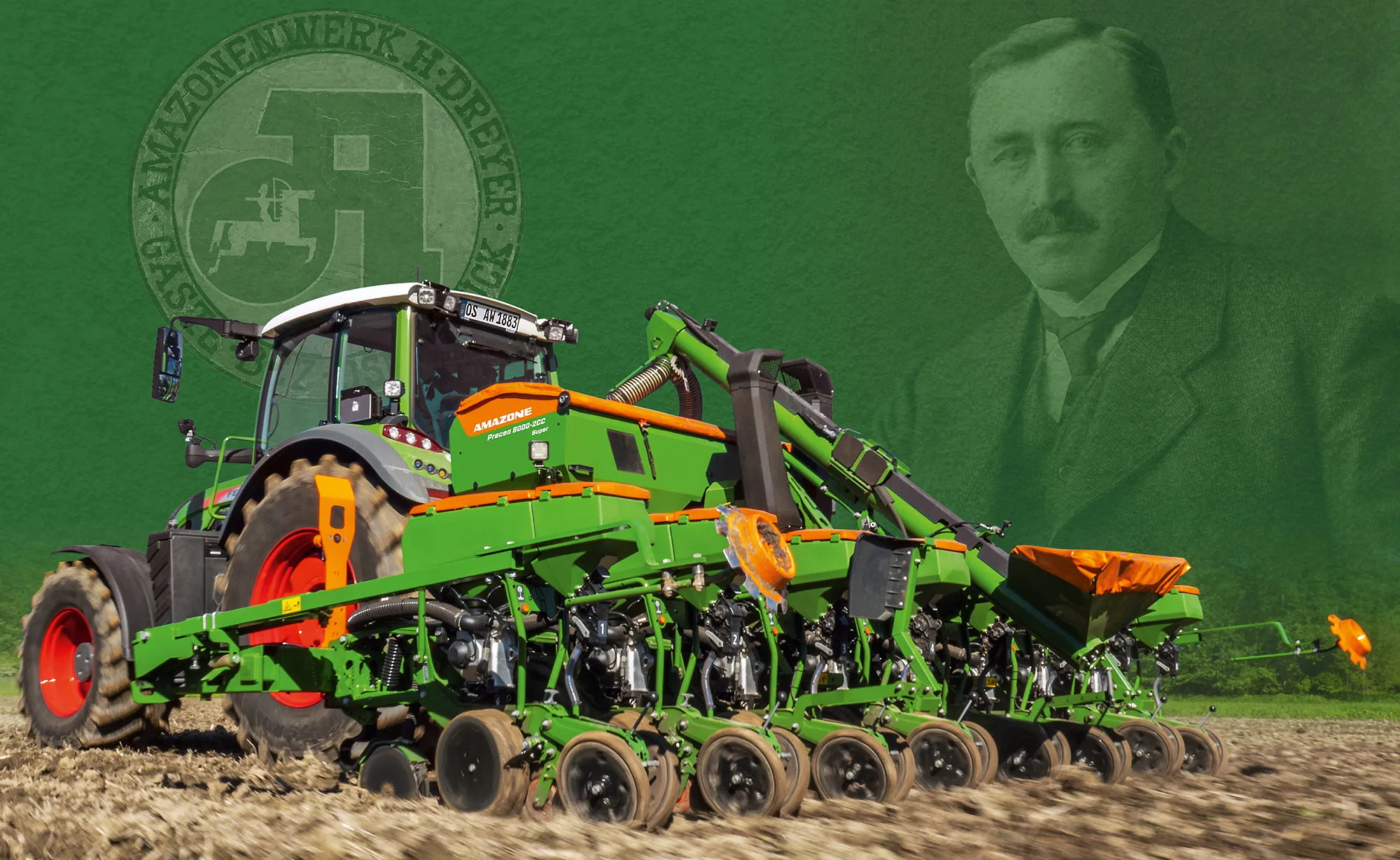
When Heinrich Dreyer founded his H Dreyer Factory for Agricultural Machinery and Equipment at Gaste, near Osnabrück, on May 1, 1883, he couldn’t have known that Amazone would eventually develop into one of the leading global manufacturers of agricultural machinery. But this family-owned company has now been offering innovative products to farmers for 140 years.
The founder initially started with the production of a grain cleaning machine and soon realised it had to go out into the world. The first grain cleaning machines were sold to Valparaiso in Chile as early as 1906, thus forming the foundation for the strong export market enjoyed today by the Amazone Group.
Heinrich Dreyer’s sons, grandsons and great-grandsons have set significant milestones along the way for product development and have continued the success story up to the present day. It was in the 1960s, in particular, that the ZA twin-disc mounted fertiliser spreader and the legendary D4 seed drill developed into genuine best-sellers. The production facilities need to be expanded, and this led to the creation of the first branch, the factory in Hude near Oldenburg. In 2009, this was expanded to become the Hude-Altmoorhausen facility aimed at the production of modern high-performance seeding systems.
With the company’s entry into the field of soil tillage, Amazone was the first manufacturer to develop PTO-driven equipment for working in combination with its seed drills. In addition, since 1998, passive soil tillage machinery has been brought onto the market with its BBG subsidiary at Leipzig.
The Dreyer family, across all its generations, has always been able to keep the company on a solid path of continuous growth. Production was expanded continuously and the product range was supplemented to include more and more areas of competence.
The Amazone takeover of plough manufacturer Vogel & Noot, at Mosonmagyaróvár, Hungary, in 2016 markedly expanded both its soil tillage range and manufacturing capacity. To supplement the factories at Gaste and Leeden, a new production facility in Bramsche, to the North of Osnabrück, was opened in 2018.
Modern assembly halls offer lots of space for a wide range of production variants, large-scale machinery production and general optimisation of logistics for the three factories. Schmotzer Hacktechnik, a company with its roots in mechanical weeding systems and with its headquarters at Bad Windsheim, has been part of the group since 2019. This represented an important expansion within the field of crop protection.
These days, the core competencies of Amazone are the active and passive soil tillage ranges, seed drills and precision seeders, fertiliser spreaders and crop protection sprayers. An additional mainstay is the production of groundscare machinery for parks and lawn maintenance, along with winter road gritting, located at a facility at Forbach in France.
For its 2022 financial year, the Amazone Group comprised nine production facilities and employed more than 2,000 staff. About 80 per cent of production was exported during the year.
The headquarters and main production facility of the Amazone Group remain at Gaste. The shares of the company are wholly owned by the fourth generation of the Dreyer family, Christian Dreyer and Dr Justus Dreyer. They intend to continue the ground-breaking success across the history of the company so that farming worldwide can rely on its innovative solutions for intelligent crop production.
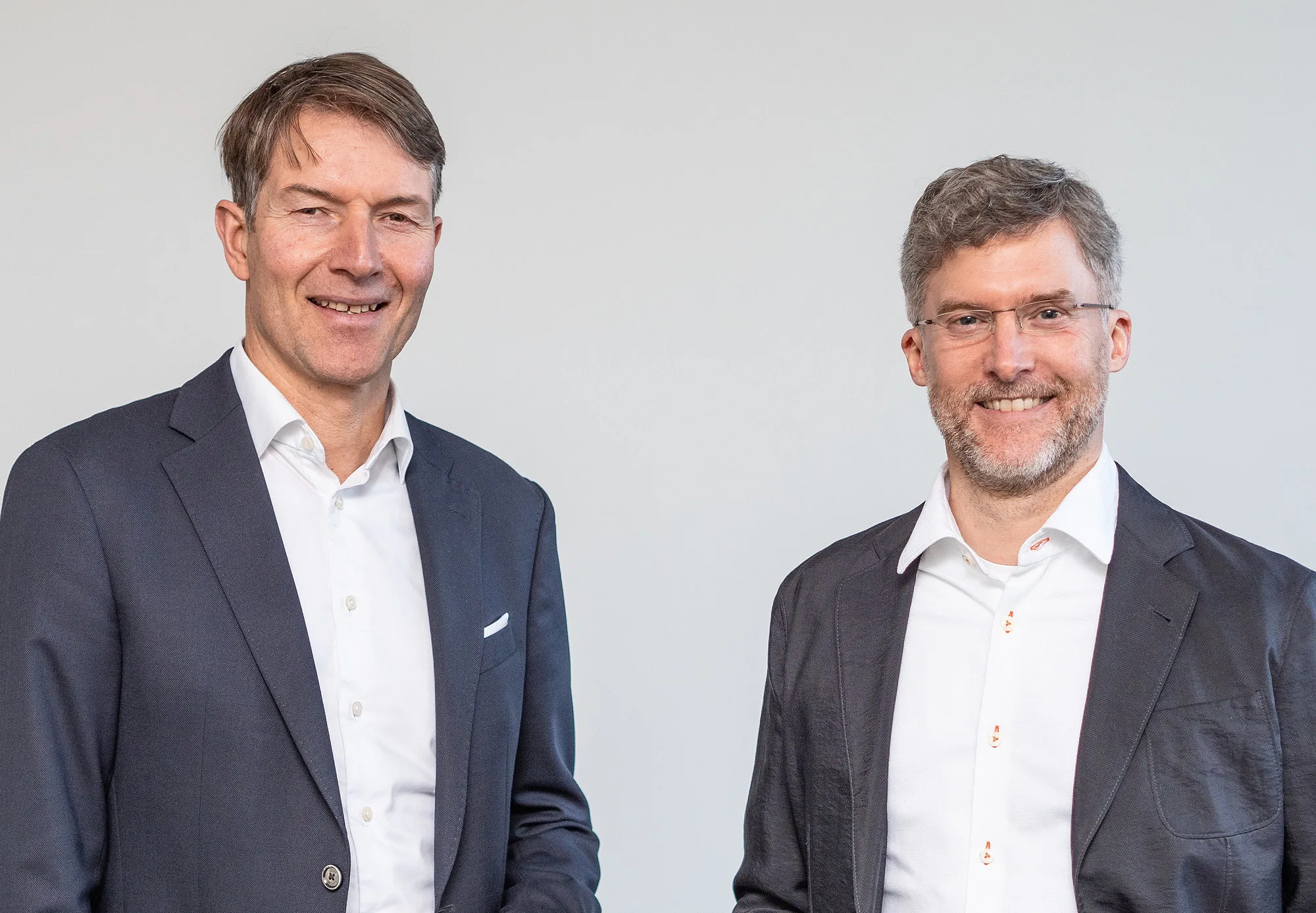
Clever planning and investing for a successful sustainable future, and not short-term profit thinking, continues to characterise the philosophy of the company. In this way, the owners will continue with the aim to expand Amazone’s production capacities in line with organic growth, and to continuously modernise existing manufacturing and logistics processes.
At the same time, Amazone will concentrate on developing partnerships, both at home and abroad, in order to acquire additional market share in all areas of competence, across all the important world markets.
“When developing new technology, we concentrate primarily on the requirements of our customers, while, at the same time, recognising, in good time, the demands of the future,” Dr Justus Dreyer said. “This approach has proven to be successful in the past.
“To better service our customers, it’s also increasingly important to accompany the increasingly complex agricultural machines and processes with even better advice and support. This includes, among other things, Amazone continuing to expand its new test farm near the Hasbergen-Gaste facility at Wambergen. A long-term arable farming field trial on controlled row farming (CRF) is currently being used there to present a new row-based arable farming system.
“We would like to make a decisive contribution to world nutrition, and to help our farmers, with innovative ideas, to continue to be capable of handling the future in a sustainable way”, Dr Dreyer adds. “There are great challenges facing professional farming these days. On the one hand, agriculture needs to produce high-quality food to feed the growing world population. On the other hand, the amount of arable land on which food can be produced is being reduced. This is exacerbated by climate change with extreme weather conditions.”
“We see three important tasks for ourselves and for farming that are naturally interlinked: Protecting valuable resources, continuously reducing the use of inputs, increased precision for sustainability and cost-efficiency whilst simultaneously maintaining a high level of yield,” Christian Dreyer said. “Amazone is therefore continuing to pursue the core goal of a high yield per hectare yet through sustainable methods. It’s therefore important to improve the efficiency of the production processes and to treat each plant as precisely as possible. At the same time, increasing biodiversity and retention of soil fertility must be important goals, in order to offer sustainable, good, long-term prospects for the generations to come.”
In order to comply even better with the ecological requirements, Amazone will concentrate, among other things, on pushing the area of Amazone 4.0 by the sensible use of electronics. The use of GPS technology, sensor systems, software and other instruments are thus intended to extend the possibilities of part-area, site-specific, individual plant-based working.
The owners intend to extend the successful machinery range with the aim of being able, in future, to offer the right technology and processes, for not only any region with its own individual special needs, but also for any size of business and cropping. An important basis for this is the expansion carried out in the internal trials programme across the international arena, in cooperation with scientific institutions, consultants and agricultural practitioners.
“We’re concentrating on Amazone being able to serve its customers optimally in the future,” Dr Dreyer said. “It continues to be important to be more flexible, more reliable and to act faster than the others. This requires us to meet the requirements of the customer, time and again, and to develop innovative technologies. For agricultural machinery and farming, which is system-relevant worldwide in order to feed the population, we see positive, long-term prospects and we are thus looking to the future with optimism.”


